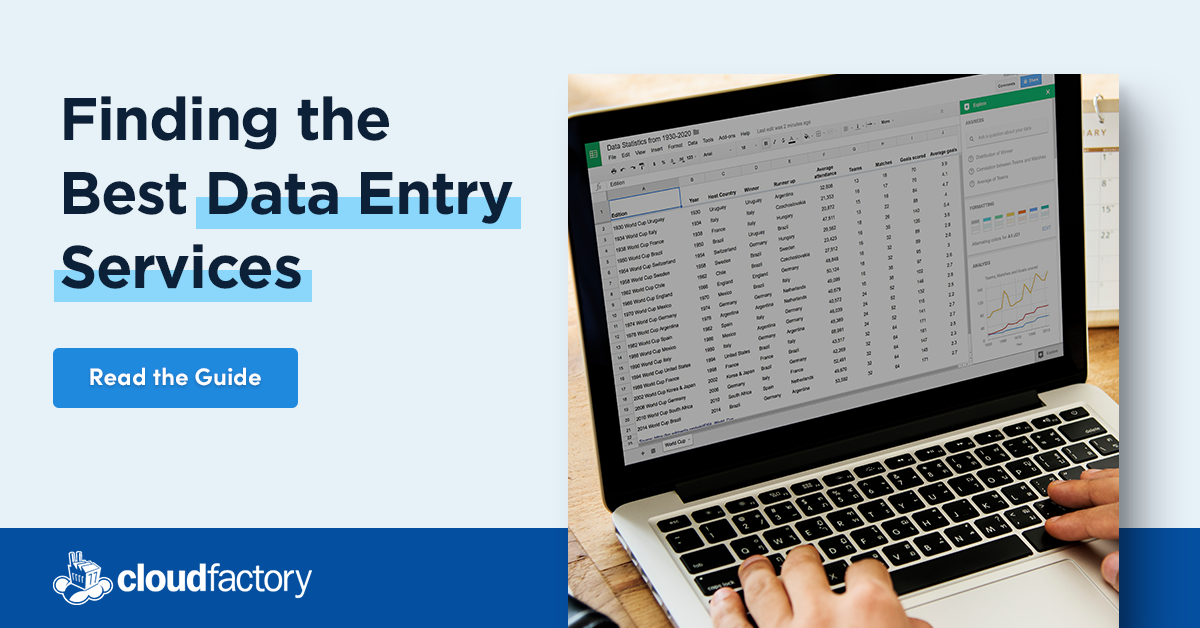
Technology is changing how legal work gets done. Artificial intelligence is being used to perform legal research, document review, and even jury selection. Emerging technology is one of the top five trends that will shape legal practices this year, according to American Legal Magazine. Author and attorney Sally Kane predicts that firms investing in technology this year to increase efficiency, reduce costs, and mitigate risk will be ahead of the game.
There’s a big and crucial first step in this process: to apply technology in these ways requires clean, structured data in digital form. Many law firms routinely deal with case files and other documents that are years or even decades old. To unlock the power of data that is stored in analog formats, data must be entered into a digital system of record.
Real estate attorneys, for example, work with documents pertaining to property tenure dating back long before the age of computers and digitization. In criminal law, attorneys often need to work with paper trails spanning many years.
While case-management software offers lots of benefits to attorneys, many firms are not yet in a position to use it because most of their case files consist of printed or scanned documents or audio recordings of court hearings and evidence. Digital transformation and the efficiency and cost benefits it brings requires a huge amount of data entry.
What are legal data entry services?
Transforming vast amounts of information into digital data that can be readily accessed, searched, and secured online is a monumental task. Smaller law firms, especially those that have been around for decades, simply don’t have the resources to do the work in-house, and data entry is hardly the best use of an attorney’s time.
Outsourcing the work to a data entry service can help you transcribe, cleanse, and enrich your legal data at scale. Given the highly sensitive nature of many legal records, it’s best to approach this task by way of a fully managed workforce that can deliver transparency, data security, and regulatory compliance.
Data entry services are experienced in managing the technology, process, and people required to do the laborious work of transcription of insurance claims, property documents, business agreements, and case details. The best data entry services can do it for you, without compromising on accuracy or client confidentiality.
Simplifying legal discovery with digitization
Digital discovery has become more important across the full range of legal services. Lawyers and judges must be able to explore historical precedence and quickly search for phrases, keywords, and sections in case files. Unfortunately, many key documents and forms of evidence still exist in audio, printed, or even handwritten form, especially if they were produced long before electronic data became the norm.
Automation has helped. For example, optical character recognition (OCR) software can automate some digitization processes. But automation is not perfect. OCR has an error rate of between 5% and 20%, and you’ll need people to inspect and process them.
One of the biggest challenges of legal discovery is the need to search disparate data sources in various forms, digital and analog. Unstructured digital data is neither quick nor easy to search, and putting together cases based primarily on printed or scanned records can take months.
Data entry services can simplify electronic discovery by transcribing, cleansing, and enriching case files, regardless of their original format and structure. They are also adept at recommending classification, organization, and consistent formatting for the data to improve its usability. This allows for instant searching over vast amounts of information, allowing attorneys to get far greater value out of their case management systems.
Paving the way for legal AI
AI is used to tackle the rising challenges of discovery in the digital age. But for many law firms, there’s a lot of work to do before AI can truly drive great efficiency in discovery. To ensure a legal AI system returns relevant documents in a search, the original information needs to be cleansed and formatted to train the machine to interpret on its own. For example, legal data entry might involve inputting meta information that refers to an entire cross section of documents to be analyzed or searched.
Preparing legal data for modern discovery processes and solutions requires a carefully chosen blend of people, processes, and technology. For example, if you want to create a system that can transform existing legal contracts into structured, searchable, and actionable data, you’ll first need to transcribe the original documents. Then, the resulting data must be cleansed and enriched to ensure accuracy and mitigate errors.
AI company Heretik is disrupting the legal industry with AI that streamlines the contract review process, making it easy to extract relevant information from legal documents with natural language processing (NLP). Heretik turned to CloudFactory to structure their data.
"We’ve been able to significantly accelerate our data science research,” said Heretik Co-founder and CTO Andy Abbott. “That’s sped up product development, especially early on, where we cut in half the time it took to do some initial training of the data.”
With data entry services at your disposal, you can process data at scale so review and discovery processes take minutes instead of hours.
CloudFactory can help
If you are part of a legal team, your filing cabinets and legal files no doubt contain high-value data that can help you speed case resolution times, improve client satisfaction, and make informed strategic decisions. But to enjoy these benefits, you need data entry, and that shouldn’t have to take your attention away from what you do best. Outsourcing might be your answer. Not sure? Check out four reasons you should outsource data entry.
For a decade, CloudFactory has offered a professionally managed workforce with a flexible subscription model that easily adapts to your changing needs. If you’re ready to consider outsourcing data entry, get in touch with a workforce expert today.
Outsourcing Data Transcription Finance and Insurance Automation & Back Office Support Data Entry








